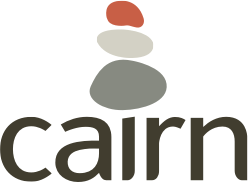Many years ago the Portland Public Schools cadre of health teachers came up with an Answering Difficult Questions Protocol. At times, especially in the health education classroom, students ask different types of questions that can throw an educator off guard. So, a group of teachers on a cadre decided it would be helpful to provide professional development to other teachers on a tried and tested protocol that became adopted by the School Board on how to answer questions that came their way.
Personal Questions:
What did you do over the summer?
Are you married?
Do you have children?
Some educators have no issue answering any of the above questions. But some do. What is the protocol if a personal questions comes your way that you are unsure about answering? What if a teacher just got divorced? Is recently widowed? Is trying to get pregnant and experiencing difficulties? Is gay or lesbian and wasn’t able to marry until recently?
For these questions, the recommendation is that a teacher has to determine if the question is appropriate to answer. If the question involves an unhealthy behavior, like, “Did you smoke pot when you were a teen?” the protocol recommends you refrain from answering the question and refers to the class group agreements/rules/norms that were set. One of the agreements should always be the right to pass. If the question doesn’t seem too personal and is appropriate, they are more than welcome to answer it.
Fact-based Questions:
Why do women have breasts?
What is a needle exchange program?
Is gay marriage legal?
What is a nocturnal emission?
These questions are fact-based. It’s important that when a student asks them, you thank them for asking the question and define it as a fact-based question. As the educator, you answer the question to the best of your ability and if you do not know the answer, tell the students you will find out what you can and answer it the next day. There may be a value-based or belief question behind some of these, but the way these are currently phrased is fact-based.
Value-based or Belief Questions:
Are you pro-choice or pro-life?
Do you agree with the Supreme Court’s ruling on gay marriage?
Do you believe in heaven?
Value-based questions sometimes take longer to answer. It is important to acknowledge the student for asking the question (thank them) and define it as a value-based or belief question. Answer any part of that question that is factual, for example, if age appropriate (middle/high school), define pro-choice, pro-life and abortion. Step up in front of the room to one side. Explain the range of beliefs, but move one step to right or left as you propose another belief that people have related to this issue. That way, as you are describing the range of beliefs, you are actually physically moving on a continuum. When you have shared 3-5 different beliefs on that continuum related to the question, ask the students what beliefs you may have missed and walk to the place on the continuum where it fits.
This exercise gives students the ability to find where their opinion may be, but also shares the range of beliefs that are out there. It creates a safe environment for empathy, or understanding that what you or your family believes isn’t always what everyone else believes. After you share those examples, ask the student if you have answered their question and always tell the class that you encourage them to talk with a trusted adult, mentor, clergy, read, and be self-aware of what beliefs resonate with them and what beliefs make them uncomfortable. Refrain from sharing your opinion unless it is a widely respected universal value… like, “Do you believe every child deserves a safe learning environment?”.
For more information on how to facilitate a professional development training or workshop with teachers on this activity/protocol, email us at info@cairnguidance.com

Leave a Reply